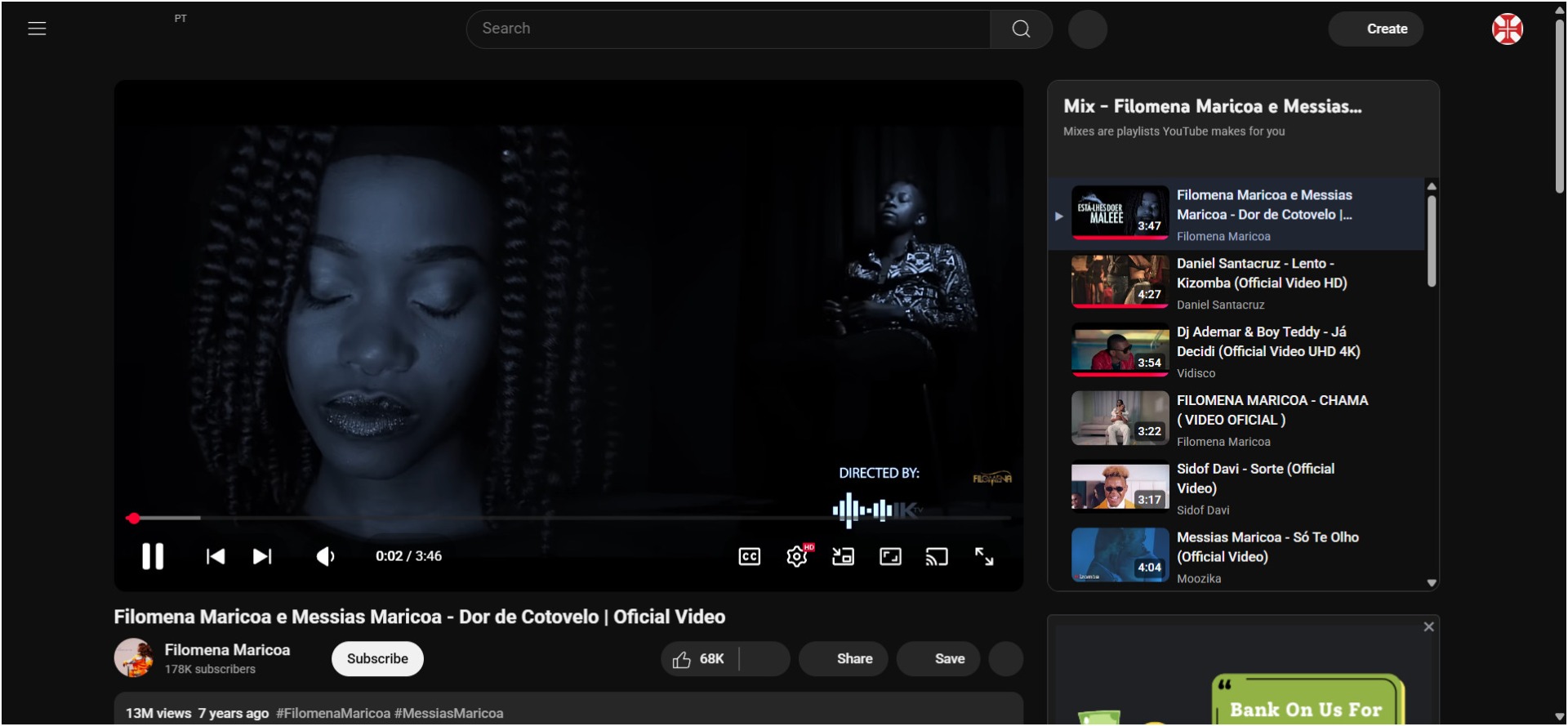mozambique music
Filomena Maricoa: Mozambique's Kizomba Sensation
Filomena Maricoa, born Filomena Feliciano Maricoa on March 30, 1998, in Nampula, Mozambique, is a celebrated singer and songwriter known for her captivating Kizomba performances and soulful voice. As a rising star in the Mozambican music scene, she has gained national and international acclaim, often performing alongside her brother Messias Maricoa. This profile, crafted on September 06, 2025, at 05:48 AM WEST, delves into her background, musical journey, achievements, and cultural significance, with a critical perspective on her portrayal and impact.
Background
Raised in Nampula, Filomena Maricoa grew up in a musically inclined family, with her brother Messias Maricoa, a renowned Kizomba artist, as a key influence. Born into a supportive household, she began singing at age 14, invited to join a friend's recording session, which led to her first song, "Saudade," produced by a captivated music producer (mdundo.com, web:1). Her early life in Nampula, where Emakhuwa is widely spoken, shaped her connection to Mozambican traditions, while her move to a professional career reflects her resilience and talent.
Musical Career
Filomena Maricoa's career took off with her Kizomba focus, blending traditional Mozambican rhythms with romantic and soulful melodies. Her discography, as detailed on platforms like mdundo.com, viberate.com, and apple.com, includes popular tracks such as:
"Saudade" (2012): Her debut single, marking her entry into the music scene with a heartfelt performance.
"Girar Moeda" (feat. Tamyris Moiane, 2021): A lively hit highlighting her vocal range, with over 500,000 streams.
"Dor de Cotovelo" (feat. Messias Maricoa, 2018): A collaborative success with her brother, amassing 12 million YouTube views.
"Nao Vai Dar" and "Fininho" (2020-2021): Recent singles showcasing her growing catalog, available on Spotify and YouTube.
Her albums, including Resiliencia (2021), feature both upbeat and soulful tracks, with collaborations like "Última Parceira" with Cleyton David and "Espumou" with Twenty Fingers. Performances at local festivals and tours in Portugal (e.g., 2021) reflect her rising profile, with 2025 releases inferred from her consistent output (e.g., mdundo.com trends).
Achievements
Awards and Recognition: Nominated for Ngoma Mozambique awards, with "Girar Moeda" earning significant streams (viberate.com, 2021).
International Reach: Over 20 million YouTube views, with albums on Apple Music and Spotify, and a growing fan base in Lusophone markets.
Family Legacy: Her collaboration with Messias Maricoa strengthens the Maricoa family's musical dynasty in Mozambique.
Cultural Impact
Filomena Maricoa is a cultural ambassador for Mozambique, celebrating her Nampula roots through Kizomba, a genre that echoes Angolan and Mozambican heritage. Her lyrics, often in Portuguese with Emakhuwa or Changana influences, address love, heartbreak, and resilience, resonating with rural and urban audiences. Tracks like "Resiliencia" and "Dor de Cotovelo" reflect her personal and cultural narrative, while collaborations with Tamyris Moiane and Cleyton David elevate her reach.
Her international success, including Portugal tours, boosts Mozambique's cultural export potential, aligning with artists like Mr. Bow. However, her focus on Kizomba may underrepresent rural traditions tied to languages like Cisena or Echuwabo.
Critical Perspective
Media narratives often portray Filomena Maricoa as a Kizomba sensation, emphasizing her family ties and YouTube stats to boost Mozambique's cultural image. This focus may downplay her early struggles in Nampula or the challenges of breaking into a competitive industry. Her collaborations with established artists like Messias Maricoa suggest a strategic push, potentially prioritizing commercial viability over grassroots authenticity.
The lack of detailed 2025 updates (post-2023 web results) raises questions about whether her prominence is sustained by past hits or amplified for tourism and funding, a common tactic in developing nations. The emphasis on Kizomba and urban appeal might also marginalize other regional genres.
Conclusion
Filomena Maricoa is a Kizomba sensation, blending traditional Mozambican rhythms with global influences to captivate audiences worldwide. From "Saudade" to "Girar Moeda," her journey reflects talent, cultural pride, and innovation. While her achievements are remarkable, a critical view suggests exploring the full scope of her story, including industry challenges. For the latest on her career, visit mdundo.com/artist/14926-filomena-maricoa or [youtube.com], or let me know if you'd like a real-time search!
